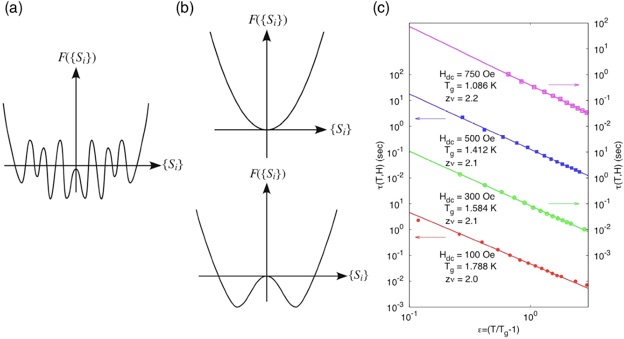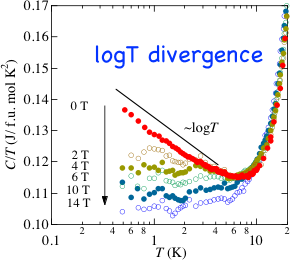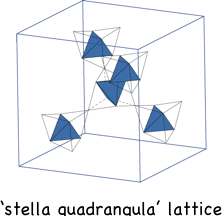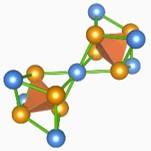Phase transition under finite magnetic field in long-range RKKY Ising spin glass
A phase transition of a model compound of the long-range Ising spin glass (SG) DyxY1−xRu2Si2, where spins interact via the Ruderman-Kittel-Kasuya-Yosida (RKKY) interaction, has been investigated. The static and dynamic scaling analyses reveal that the SG phase transition in the model magnet belongs to the mean-field universality class. Moreover, the characteristic relaxation time in finite magnetic fields, as well as in zero field, exhibits a critical divergent behavior, indicating the stability of the SG phase in finite fields. The presence of the SG phase transition in the field in this model magnet strongly suggests that the replica symmetry is broken in the long-range Ising SG.
Non-Fermi-liquid behavior on an iron-based itinerant electron magnet Fe3Mo3N
We have found that a cubic eta-carbide-type compound Fe3Mo3N shows a non-Fermi liquid behavior near the ferromagnetic quantum critical point; the specific heat shows log(T) divergence at low temperatures and the resistivity T^(5/3) power dependence. This is a unique example of NFL behaviors found in 3d electron systems under ambient pressure and without doping.This compound shows a sharp metamagnetic transition at ~14 T from the nonmagnetic metal to field-induced ferromagnetic metal. This transition can be interpreted as the release of the geometric frustration in the ‘stella quadrangula’ lattice, which is a unique geometrically frustrated lattice found in eta-carbide (Fe3W3C) type compounds.


Please click here to related press article in Japanese.
